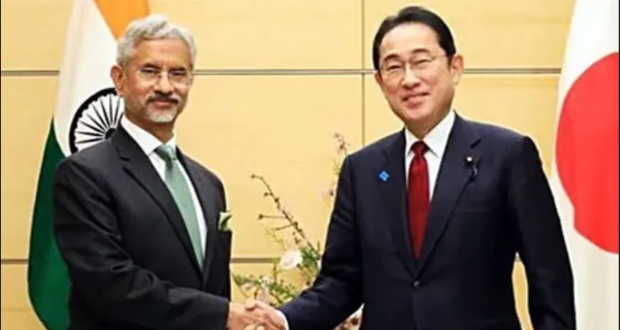The visit was part of the 10th India - Republic of Korea Joint Commission Meeting (JCM) where Jaishankar met with H.E. Mr. Cho Tae-yul, Minister of Foreign Affairs of the Republic of Korea, and the 16th India-Japan Foreign Ministers Strategic Dialogue where Jaishankar engaged in discussions with the Foreign Minister of Japan H.E. Ms. Yoko Kamikawa. Also on the agenda was participation in the first Raisina Roundtable@Tokyo organised jointly by the foreign ministries of India and Japan which brought together business leaders, think tanks, and academia, as part of Track II efforts to deepen bilateral ties and strengthen regional cooperation.
Key aspects of New Delhi’s partnership with Seoul include semiconductors, green hydrogen, nuclear capabilities, and critical and emerging technologies
While India’s ties with both Japan and South Korea have been important with the steady deepening of ties over the years, bilateral cooperation with both has witnessed a definitive upswing in recent years with an expansion in the scope of partnership with both countries which has gradually laid the foundations of a potential trilateral framework of cooperation among the three. Key aspects of New Delhi’s partnership with Seoul include semiconductors, green hydrogen, nuclear capabilities, and critical and emerging technologies. With Tokyo, the focus is on defence and digital technologies, clean energy, high-speed rail, industrial competitiveness, and connectivity. With both countries, semiconductors and supply chain resilience are common aspects of cooperation that New Delhi wants to build upon.
Japan and South Korea play pivotal roles in India's Indo-Pacific outreach, contributing significantly to the region's strategic landscape across various dimensions. Japan, as a longstanding economic partner, has been integral to India's economic development in critical aspects such as infrastructure development, technology transfer, and investments, contributing substantially to India's growth trajectory and aligning with its vision for sustainable development in the Indo-Pacific. Japan has been a key player in India's economic development, with a long-term focus on infrastructure projects. Both countries also share similar concerns about regional stability and advocate for a rules-based order. The Quad partnership, which includes Japan, aligns with India's broader outreach goals, emphasizing the importance of upholding international norms, ensuring freedom of navigation, addressing security challenges, and fostering economic growth. Japan's participation in the Quad strengthens the collective voice advocating for a free and open Indo-Pacific, reinforcing India's position in the region. Collaborative endeavors between the two in maritime security enhance India's capacity to address challenges in the Indian Ocean and strengthen the participation and efforts of New Delhi and Tokyo on multilateral platforms in the Indo-Pacific.




